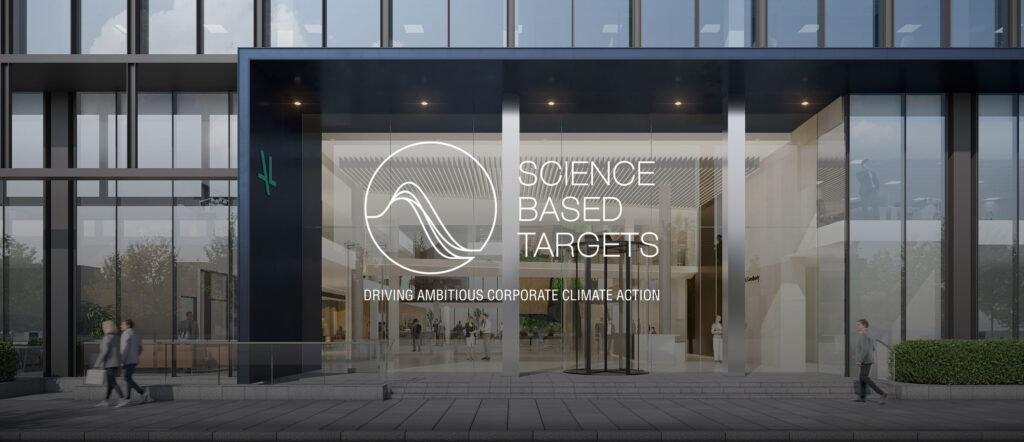SBTi Launches New Strategy to Accelerate Corporate Decarbonisation

The global Science Based Targets initiative (SBTi) has launched a new strategy to increase ambition in targets that corporations set to combat climate change.
Until now, SBTi has called on firms to adopt targets aligning emissions cuts to a goal of “well below” 2 degrees Celsius. New targets require a firm ceiling of 1.5°C.
The move is in line with the Paris Agreement and mounting scientific evidence that global warming should not exceed 1.5°C above levels in the early 1800s. Climate impacts could become increasingly severe beyond that point.
Science-based target setting now covers 20 per cent of the global economy, driving corporate decarbonization. Between 2015 and 2020, companies with validated targets cut emissions by 25 per cent compared with an increase of 3.4 per cent in global energy and industrial emissions.
“The SBTi has become the de facto standard for businesses to set credible targets to address the climate crisis,” said Lila Karbassi, SBTi Board Chair and Chief of Programmes at the UN Global Compact.
Related Article: Net Zero Value Chains: Enabling collaboration to unlock value chain decarbonisation at scale
“However, to have a fighting chance of limiting warming to 1.5°C, we need to urgently scale-up and mainstream the adoption of 1.5°C-aligned targets. This strategy enables us to consistently provide businesses across the globe with the most robust target-setting framework so that companies can confidently align with climate science.”
Since 2019, more than 600 companies from across the world have committed to making changes in line with the SBTi’s Business Ambition for 1.5°C campaign. The companies represent $13 trillion in market capitalization.
Selwin Hart, Special Adviser and Assistant Secretary-General for Climate Action at the United Nations, said: “Increasing the ambition level of the SBTi is a step in the right direction and provides much needed clarity to businesses on setting credible emissions reduction targets. I urge all companies that have yet to set goals to do so and back their 1.5°C targets with clear and credible plans to achieve them.”
The SBTi will focus on accelerating adoption and implementation of 1.5°C-aligned targets particularly among companies in high-emitting sectors and across Group of 20 countries. A new and independent technical decision-making body will help ensure the robustness of target-setting methods and standards.
Jan Jenisch, CEO at Holcim, the Swiss global building materials company, noted that working in partnership with SBTi helped the Swiss building materials company set ambitious climate targets for a net-zero emissions future. He noted, “We fully support SBTi’s new strategy to increase the minimum ambition of businesses to 1.5 C. Together, we can accelerate our economy’s decarbonization, working with like-minded organizations to raise the bar for climate action.”
SBTi managing director Alberto Carrillo Pineda concluded, “We need every company to play their part, and set science-based 1.5°C-aligned emission reduction targets to help us halve global emissions in the next eight years.”








